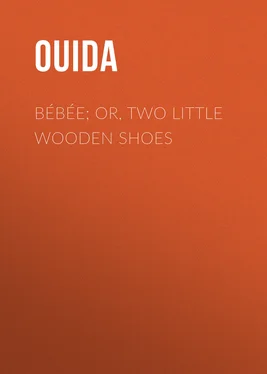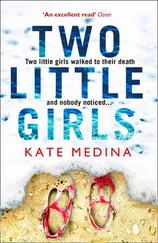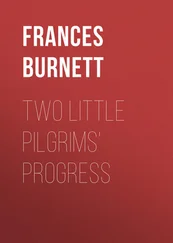Ouida - Bébée; Or, Two Little Wooden Shoes
Здесь есть возможность читать онлайн «Ouida - Bébée; Or, Two Little Wooden Shoes» — ознакомительный отрывок электронной книги совершенно бесплатно, а после прочтения отрывка купить полную версию. В некоторых случаях можно слушать аудио, скачать через торрент в формате fb2 и присутствует краткое содержание. Жанр: foreign_children, foreign_antique, foreign_prose, на английском языке. Описание произведения, (предисловие) а так же отзывы посетителей доступны на портале библиотеки ЛибКат.
- Название:Bébée; Or, Two Little Wooden Shoes
- Автор:
- Жанр:
- Год:неизвестен
- ISBN:нет данных
- Рейтинг книги:5 / 5. Голосов: 1
-
Избранное:Добавить в избранное
- Отзывы:
-
Ваша оценка:
- 100
- 1
- 2
- 3
- 4
- 5
Bébée; Or, Two Little Wooden Shoes: краткое содержание, описание и аннотация
Предлагаем к чтению аннотацию, описание, краткое содержание или предисловие (зависит от того, что написал сам автор книги «Bébée; Or, Two Little Wooden Shoes»). Если вы не нашли необходимую информацию о книге — напишите в комментариях, мы постараемся отыскать её.
Bébée; Or, Two Little Wooden Shoes — читать онлайн ознакомительный отрывок
Ниже представлен текст книги, разбитый по страницам. Система сохранения места последней прочитанной страницы, позволяет с удобством читать онлайн бесплатно книгу «Bébée; Or, Two Little Wooden Shoes», без необходимости каждый раз заново искать на чём Вы остановились. Поставьте закладку, и сможете в любой момент перейти на страницу, на которой закончили чтение.
Интервал:
Закладка:
Under the vast shadowy wings of angels in the stillness of the cathedral, across whose sunny aisles some little child goes slowly all alone, laden with lilies for the Feast of the Assumption, till their white glory hides its curly head.
In all strange quaint old-world niches withdrawn from men in silent grass-grown corners, where a twelfth-century corbel holds a pot of roses, or a Gothic arch yawns beneath a wool warehouse, or a waterspout with a grinning faun's head laughs in the grim humor of the Moyen-âge above the bent head of a young lace-worker.
In all these, Brussels, though more worldly than her sisters of Ghent and Bruges, and far more worldly yet than her Teuton cousins of Freiburg and Nürnberg, is still in her own way like as a monkish story mixed up with the Romaunt of the Rose; or rather like some gay French vaudeville, all fashion and jest, illustrated in old Missal manner with helm and hauberk, cope and cowl, praying knights and fighting priests, winged griffins and nimbused saints, flame-breathing dragons and enamoured princes, all mingled together in the illuminated colors and the heroical grotesque romance of the Middle Ages.
And it was this side of the city that Bébée knew; and she loved it well, and would not leave it for the market of the Madeleine.
She had no one to tell her anything, and all Antoine had ever been able to say to her concerning the Broodhuis was that it had been there in his father's time; and regarding St. Gudule, that his mother had burned many a candle before its altars for a dead brother who had been drowned off the dunes.
But the child's mind, unled, but not misled, had pondered on these things, and her heart had grown to love them; and perhaps no student of Spanish architecture, no antiquary of Moyen-âge relics, loved St. Gudule and the Broodhuis as little ignorant Bébée did.
There had been a time when great dark, fierce men had builded these things, and made the place beautiful. So much she knew; and the little wistful, untaught brain tried to project itself into those unknown times, and failed, and yet found pleasure in the effort. And Bébée would say to herself as she walked the streets, "Perhaps some one will come some day who will tell me all those things."
Meanwhile, there were the flowers, and she was quite content.
Besides, she knew all the people: the old cobbler, who sat next her, and chattered all day long like a magpie; the tinker, who had come up many a summer night to drink a-glass with Antoine; the Cheap John, who cheated everybody else, but who had always given her a toy or a trinket at every Fête Dieu all the summers she had known; the little old woman, sour as a crab, who sold rosaries and pictures of saints, and little waxen Christs upon a tray; the big dogs who pulled the carts in, and lay panting all day under the rush-bottomed chairs on which the egg-wives and the fruit sellers sat, and knitted, and chaffered; nay, even the gorgeous huissier and the frowning gendarme, who marshalled the folks into order as they went up for municipal registries, or for town misdemeanors,—she knew them all; had known them all ever since she had first trotted in like a little dog at Antoine's heels.
So Bébée stayed there.
It is, perhaps, the most beautiful square in all Northern Europe, with its black timbers, and gilded carvings, and blazoned windows, and majestic scutcheons, and fantastic pinnacles. That Bébée did not know, but she loved it, and she sat resolutely in front of the Broodhuis, selling her flowers, smiling, chatting, helping the old woman, counting her little gains, eating her bit of bread at noonday like any other market girl, but at times glancing up to the stately towers and the blue sky, with a look on her face that made the old tinker and cobbler whisper together, "What does she see there?—the dead people or the angels?"
The truth was that even Bébée herself did not know very surely what she saw—something that was still nearer to her than even this kindly crowd that loved her. That was all she could have said had anybody asked her.
But none did.
No one wanted to hear what the dead said; and for the angels, the tinker and the cobbler were of opinion that one had only too much of them sculptured about everywhere, and shining on all the casements—in reverence be it spoken, of course.
CHAPTER III
"I remembered it was your name-day, child Here are half a dozen eggs," said one of the hen wives; and the little cross woman with the pedler's tray added a waxen St. Agnes, colored red and yellow to the very life no doubt; and the old Cheap John had saved her a cage for the starling; and the tinker had a cream cheese for her in a vine-leaf, and the sweetmeat seller brought her a beautiful gilded horn of sugarplums, and the cobbler had made her actually a pair of shoes—red shoes, beautiful shoes to go to mass in and be a wonder in to all the neighborhood. And they thronged round her, and adored the silver waist buckles; and when Bébée got fairly to her stall, and traffic began, she thought once more that nobody's feast day had ever dawned like hers.
When the chimes began to ring all over the city, she could hardly believe that the carillon was not saying its "Laus Deo" with some special meaning in its bells of her.
The morning went by as usual; the noise of the throngs about her like a driving of angry winds, but no more hurting her than the angels on the roof of St. Gudule are hurt by the storm when it breaks.
Hard words, fierce passions, low thoughts, evil deeds, passed by the child without resting on her; her heart was in her flowers, and was like one of them with the dew of daybreak on it.
There were many strangers in the city, and such are always sure to loiter in the Spanish square; and she sold fast and well her lilacs and her roses, and her knots of thyme and sweetbrier.
She was always a little sorry to see them go, her kindly pretty playmates that, nine times out of ten no doubt, only drooped and died in the hands that purchased them, as human souls soil and shrivel in the grasp of the passions that woo them.
The day was a busy one, and brought in good profit. Bébée had no less than fifty sous in her leather pouch when it was over,—a sum of magnitude in the green lane by Laeken.
A few of her moss-roses were still unsold, that was all, when the Ave Maria began ringing over the town and the people dispersed to their homes or their pleasuring.
It was a warm gray evening: the streets were full; there were blossoms in all the balconies, and gay colors in all the dresses. The old tinker put his tools together, and whispered to her,—
"Bébée, as it is your feast day, come and stroll in St. Hubert's gallery, and I will buy you a little gilt heart, or a sugar-apple stick, or a ribbon, and we can see the puppet show afterwards, eh?"
But the children were waiting at home: she would not spend the evening in the city; she only thought she would just kneel a moment in the cathedral and say a little prayer or two for a minute—the saints were so good in giving her so many friends.
There is something very touching in the Flemish peasant's relation with his Deity. It is all very vague to him: a jumble of veneration and familiarity, of sanctity and profanity, without any thought of being familiar, or any idea of being profane.
There is a homely poetry, an innocent affectionateness in it, characteristic of the people. He talks to his good angel Michael, and to his friend that dear little Jesus, much as he would talk to the shoemaker over the way, or the cooper's child in the doorway.
It is a very unreasonable, foolish, clumsy sort of religion, this theology in wooden shoes; it is half grotesque, half pathetic; the grandmothers pass it on to the grandchildren as they pass the bowl of potatoes round the stove in the long winter nights; it is as silly as possible, but it comforts them as they carry fagots over the frozen canals or wear their eyes blind over the squares of lace; and it has in it the supreme pathos of any perfect confidence, of any utterly childlike and undoubting trust.
Читать дальшеИнтервал:
Закладка:
Похожие книги на «Bébée; Or, Two Little Wooden Shoes»
Представляем Вашему вниманию похожие книги на «Bébée; Or, Two Little Wooden Shoes» списком для выбора. Мы отобрали схожую по названию и смыслу литературу в надежде предоставить читателям больше вариантов отыскать новые, интересные, ещё непрочитанные произведения.
Обсуждение, отзывы о книге «Bébée; Or, Two Little Wooden Shoes» и просто собственные мнения читателей. Оставьте ваши комментарии, напишите, что Вы думаете о произведении, его смысле или главных героях. Укажите что конкретно понравилось, а что нет, и почему Вы так считаете.












